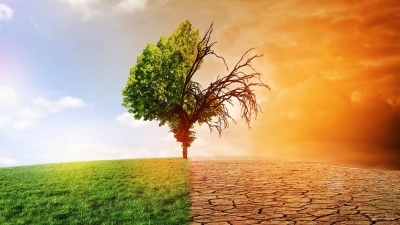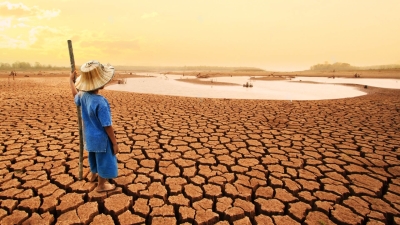How Climate Change affects nutrition

Climate change has become a threat to food security and sustainable development, since it has complex and extended risks, as it affects soil, its quality, pest control systems and different growth patterns, in addition to degradation of agricultural lands and a decrease in biodiversity, which requires building Flexible food systems to deal with these changes.
Climate change has exacerbated food security and unsustainable systems, resulting in poor nutrition and the spread of disease.
The health consequences of climate change lead to an increase in infected people resulting from malnutrition, which is revealed by World Health Organization. According to its estimates, about 600 million people, 7.5% of the total world population, become ill due to eating contaminated food, and died about 420 thousand.
Climate change repercussions extend to earth, as high temperatures affect water security, which leads to a change in arable land, which in turn affects food safety, in addition to its impact on environmental systems by disturbing the balance between crops and harmful pests.
The climate change crisis greatly affects animal production, as heavy rains and floods negatively affect the health of animals because of the diseases that these natural phenomena transmit, severe heat waves also affect; death of more than 17 million birds in India, because of the intense heat waves that it witnessed in mid-2015.
Climate change is related to population increase, as with the emergence of an increasing demand for food as a natural result of population increase, there is a trend towards the intensive use of agricultural chemicals, such as pesticides and fertilizers; to increase agricultural production as well as enhancing livestock.
The use of chemical pesticides is also linked to chemical pollution, as it may lead to many diseases, especially cancer, reproductive health concerns and damage to the respiratory system.
Climate changes affect women more, as a report issued by the Intergovernmental Panel on Climate Change of UN indicated that women are more likely to suffer from chronic diseases and higher levels of obesity, among 690 million people who suffer from food insecurity around the world, there are 60 % of them are women.
Countries that mainly depend on importing food work to support scientific research and technological innovation to improve crop production, whether in countries that have production and export capabilities or countries current exporting.
It should also provide the technology needed to develop the equipment and facilities to reduce storage losses.
Governments should also support international research centers for food, these countries can provide scholarships and research for PhDs in this field, in addition to initiating an advanced system for storing foodstuffs.












